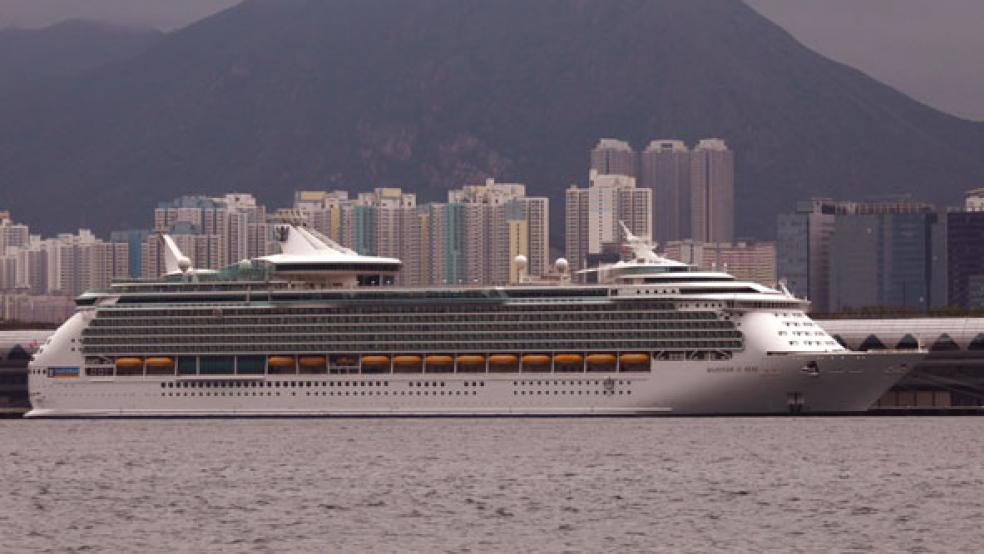Americans are getting ready to spend big bucks to sit on the beach this summer. More than two thirds are planning a vacation – up 17 percent from last year, according to a recent American Express survey. And they’re not exactly roughing it – 31 percent of those surveyed plan to spend more than $1,000 per person on their trips, up from 27 percent last year.
PHOTO GALLERY: 17 Travel Apps to Download Before You Go
This is no surprise to Elizabeth Becker, author of Overbooked: The Exploding Business of Travel and Tourism, who has watched the travel industry explode in recent years. According to her research, 1 billion people crossed international borders last year. That’s up from 536 million in 1995.
The tourism industry is boosting local budgets and adding trillions of dollars annually to the world economy – it creates $3 billion in business every day, contributes at least $6.5 trillion every year to the economy and is one of the biggest employers (it created nearly 250 million jobs in 2007, which doesn’t include domestic travel).
The Fiscal Times spoke with Becker about how the tourism industry is changing, why you should care, and how you can travel smarter.
The Fiscal Times (TFT): Is tourism seeing a resurgence in the U.S.?
Elizabeth Becker (EB): A little bit – President Obama has looked at the visa issue and other issues, and now he’s promoting an easier way for Chinese, Brazilian, and Indian tourists to come to the U.S. In 2009, more Chinese tourists visited Paris than all of the U.S.
As a government, you want to be able to regulate and secure the type of tourists you want to come here. You want them to enjoy the country and leave it in good shape. Tourism gave the U.S. the amazing example of the National Parks.
TFT: How big a stimulus could this be?
EB: One out of eleven people in the world are employed by the travel and tourism industry. That’s a lot of jobs.
TFT: Yet you describe tourism as a “cutthroat, high-risk” industry. Why?
EB: If you’re on the short-term profit side of the industry, numbers are everything. I hear about websites all that time that rip off people. People send in money and the hotel doesn’t exist – and this is happening more and more all over the world. It’s one reason the supposedly disappearing profession of travel agent is on the rebound.
RELATED: 7 Secrets to Scoring Cheap Airline Tickets
TFT: No one wants to be a “tourist,” but when enough people go to the same place, that’s what you become. How can you travel and not buy into the “tourism industry”?
EB: There’s nothing wrong with the word tourist – it means you’re touring around a country. It should be an adventure. Just recognize that there are limitations to it. It helps if you speak the language, and if you don’t, do some preparation. Read modern history books, and see if you know someone who knows someone in that destination. People think they’ve prepared by spending a couple of hours online booking everything, but that’s not preparation.
TFT: What about the rise of Airbnb and the sharing economy? Do you see that continuing?
EB: There’s a lot of good [things] to say about [the sharing economy], but again, make sure you're not going to be ripped off. It’s a lovely idea to stay with the locals and help them economically. Just make sure you’re staying at a reputable local and not in some flaky or twisted situation. There are lots of stories of great Airbnbs and others that are pretty hair-raising.
TFT: Which countries are best at dealing with tourism?
EB: Those that have the longest experience, not surprisingly. France invented the paid vacation. Their beaches are all public and protected. It's the most popular destination in the world even though it's smaller than Texas. Yet they’re very careful to make sure that tourism is countrywide and that it benefits everyone. Costa Rica is another good example – it’s where they invented eco-tourism. A huge portion of their country is national preserves.
RELATED: 3 Things You Need to Know about Traveling This Summer
TFT: You say the two-week vacation drives a big part of the travel boom. Could expanding vacation time everywhere fuel GDP in some countries?
EB: Yes, but people are not as rational as that. In this economy, people are working 12 hour days. In the U.S., people are not taking vacation. We're one of the few countries where it’s not a national given that you will get your vacation.
The money in tourism now is from what they call “silver/gold,” or people who've retired. It's amazing the amount of money retired people will spend on tourism.
TFT: But retirement is facing a crisis in this country. People need to retire later, and they don't have the same savings.
EB: It hasn't shown up yet [in the tourism industry]. When I was doing research, I was surprised at the amount of money [retirees] are willing to spend on travel. The industry is also counting on things like “industrialized tourism,” where a lot of people show up at the same time for just a few hours, and it’s worrisome because of the environmental impact.
Venice, one of the most beautiful cities in the world, has only 60,000 people living there, but it’s visited every year by 20 million. The industry wants to take advantage of this. International boutiques and hotels are pushing out local B&B's, grocers and artisan shops. The local Venetians can't afford to live there anymore. It’s turning into Disneyland.
TFT: What’s the future of the travel industry if these trends continue?
EB: The key is China. There are so many Chinese now prepared to go overseas that by 2020 they’ll make up the largest number of tourists around the world. Countries are looking forward to this and trying to figure out how to best accommodate them and make sure that their country profits from them. At the same time, China itself is becoming a big destination. More hotels were built in the last year in China than anywhere else in the world.





